Speakers
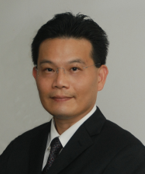
Prof. Weerakorn Ongsakul
IEEE PES Thailand Chapter
Asian Institute of Technology, Thailand
Prof. Dr. Weerakorn Ongsakul, CFA, ERP obtained B.Eng. (Electrical
Eng.) in 1988 from Chulalongkorn University, Thailand; M.S. and
Ph.D. (Electrical Eng.) from Texas A&M University, USA in 1991 and
1994, respectively. He is currently a Full Professor of Energy, Dept
of Energy, Environment and Climate Change Asian Institute of
Technology (AIT). He served as a Dean of School of Environment,
Resources and Development, AIT from September 2009 to June 2013.
His research encompasses the areas of Intelligent System
Applications to Energy Systems, Power System Restructuring and
Deregulation, and Energy Risk & Financial Risk Management. He has
conducted national and international sponsored projects with a
combined funding of US$30 million. Based on his research work, he
has published more than 250 international refereed journal articles
and conference proceedings papers. He is currently serving as
Executive Director of Bangchak Innitiative and Innovation Center@AIT
(BIIC@AIT), Secretary General of the Greater Mekong Subregion
Academic and Research Network (GMSARN), Editor-in-Chief of GMSARN
International Journal (Indexed by SCOPUS). He co-authored one book
entitled Artificial Intelligence in Power System Optimization, CRC
Press/Taylor & Francis in March 2013. He also received a number of
national & international awards and recognitions which include
amongst others, the Most Noble Order of the Crown of Thailand (Fifth
Class) in 2008, the Most Exalted Order of the White Elephant (Fifth
Class) in 2010, and the Royal Decoration on Companion (Seventh
Class) of the Most Admirable Order of the Direkgunakorn bestowed by
H.M. the King of Thailand in 2011, and Outstanding Engineer Award
(OEA) 2019, IEEE PES Thailand Chapter, IEEE Power and Energy
Society, USA. In addition, he has been a CFA Charterholder since
Sept 2017and Certified Energy Risk Professional since March 2019.
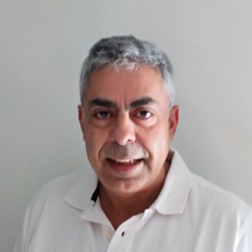
Prof.
Dimitrios Karamanis,
University of Patras, Greece
Professor of Alternative Energy Sources at University of Patras. His research interest started with the development of appropriate countermeasures for the mitigation of the severe environmental consequences of the Chernobyl accident and followed by cross section measurements in the thorium fuel cycle for energy production and waste incineration. Expanded to the study of wind and solar energy systems in the last fifteen years and currently research focused on solar cooling of buildings and the integration of photovoltaics in buildings for electricity production towards carbon neutral cities. By participating in national and international research programs as a scientific coordinator and researcher, he has published more than 110 scientific papers in scientific journals, patents and book chapters with >3000 citations and h-index 35 (Scopus). Prof. Karamanis teaches courses in the subject of renewable energy sources and their applications since 2006 in Departments of the Universities of Ioannina and Patras.
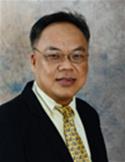
Assoc Prof. Ng
Yin Kwee
Nanyang Technological University, Singapore
Eddie is
elected as:
Academician for European Academy of Sciences and Arts (EASA, EU);
Fellow of the American Society of Mechanical Engineers (FASME, USA);
Fellow of Institute of Engineering and Technology (FIET, United
Kingdom);
Fellow of International Engineering and Technology Institute (FIETI,
Hong Kong),
Distinguished Fellow for Institute of Data Science and Artificial
Intelligence,
(DFIDSAI, China), and, Academician for Academy of Pedagogy and
Learning, (USA).
He has published numerous papers in SCI-IF int. journal (430); int.
conf. proceedings (130), textbook chapters (>105) and others (32)
over the 29 years. Co-edited 14 books in STEM areas.
He is the: Lead Editor-in-Chief for the ISI Journal of Mechanics in
Medicine and Biology for dissemination of original research in all
fields of mechanics in medicine and biology since 2000;
Founding Editor-in-Chief for the ISI indexed Journal of Medical
Imaging and Health Informatics (2011-2021);
Associate editor or EAB of various referred international journals
such as Applied Intelligence, BioMedical Engineering OnLine,
Computers in Biology & Medicine, and, Journal of Advanced Thermal
Science Research.
He published > 542 papers in SCI-IF int. journal (430); int. conf. proceedings (130), textbook chapters (>105) and others (32) over the 27 years. Co-edited 14 books on “Cardiac Pumping and Perfusion Engineering” by WSP (2007); “Imaging and Modelling of Human Eye” by Artech (2008); “Distributed Diagnosis and Home Healthcare, v.1” by ASP (2009); “Performance Evaluation in Breast Imaging, Tumor Detection & Analysis” by ASP (2010); “Distributed Diagnosis and Home Healthcare, v.3” by ASP (2011); “Computational Analysis of Human eye with Applications” by WSP (2011); “Human Eye Imaging and Modeling” by CRC (2011); “Multimodality Breast Imaging” by SPIE (2013); “Image Analysis and Modeling in Ophthalmology”; “Ophthalmology Imaging and Applications” by CRC (2013, 2014); “Bio-inspired Surfaces and Applications” by WSP (2016); “Application of Infrared to Biomedical Sciences” by Springer (2017) and “Computation and Mathematical Methods in Cardiovascular Physiology” by WSP (2019). Also, co-authored a text book: “Compressor Instability with Integral Methods” by Springer (2007).
His main area
of research is thermal imaging, human physiology, biomedical engg;
computational turbomachinery aerodynamics; micro-scale cooling
problems; computational fluid dynamics & numerical heat transfer. As
of 2020, he has graduated 24 Ph.D. and 28 M.Eng. research students.
One of my graduated PhD students, Dr. Saxena received the NTU’s
Graduate College Research Excellence Award (2020/21) and another
one, Dr Tan JH is listed as the Highly Cited Researchers by
Clarivate Web of Science in 2020.
More details can be found in: Cv: https://dr.ntu.edu.sg/cris/rp/rp00847
Speech Title:
Machine Learning of Wake Velocity and Turbulence Intensity of an
Axial Wind Turbine
Speech Abstract: In this talk, three machine learning (ML)
algorithms viz. Support Vector Regression (SVR), Artificial Neural
Networks (ANN), and Extreme Gradient Boosting (XGBoost) are
implemented to predict wake velocity and turbulence intensity from a
wind turbine at different downstream distances. To this end, a set
of high-fidelity numerical simulations are performed for the NREL
Phase VI wind turbine to produce training and test datasets for the
three machine learning algorithms. Using the trained model, the wake
flow field downstream of the blade and turbulence intensity are
predicted on the test datasets which are hidden from the trained
model. The prediction of wake velocity deficit and turbulence level
in the wake from the machine learning algorithms are commensurate to
the Computational Fluid Dynamics (CFD) simulations while running as
fast as low-fidelity wake models. The wake velocity and turbulence
intensity obtained from the ML models are also compared with some of
the analytical wake models. The results reveal that machine
learning-based algorithms can approximate wake and turbulence
intensity characteristics better than the traditional analytical
wake models.
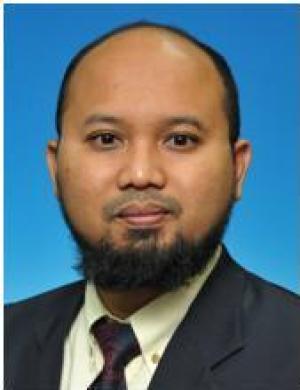
Prof. Hazlie Mokhlis
University of Malaya, Malaysia
Chair for IEEE Power Energy Society, Malaysia Chapter
Hazlie Mokhlis received the Bachelor of Engineering (B. Eng. (Hons)) degree and Master of Engineering Science (M. Eng.Sc) in Electrical Engineering from University of Malaya in 1999 and 2003 respectively. He received PhD degree from the University of Manchester in 2009. He is currently Professor at Department of Electrical Engineering, University of Malaya. He had held several positions; Deputy Dean Research (2013-2014), Deputy Dean Postgraduate Studies (2014-2015, 2017-2018), Deputy Dean Undergraduate Studies (2018-2019) and Head of Department (2015-2017) at the Faculty of Engineering. Dr Hazlie is actively involved in research as a principle investigator with a total amount of research grant worth more than RM 2 million. He is the author and co-author of more than 300 publications in international journals and proceedings in the area of Power Systems and Energy. Up to now, he had successfully supervised to completion 27 PhD, 7 Master (by research) and 56 Master (Mix-mode and Course Work) candidates. He also involves actively as reviewer for international journal such as IEEE transaction on Power Systems, IEEE transaction on Sustainable Energy, IET Generation, Transmission & Distribution, International Journal of Electrical Power & Energy Systems, Applied SoftComputing, Energy Conversion & Management, and several international conferences. Besides involve with research, he is also active in the development of Malaysian Standard as a member of Working Group in Development of Malaysian's Power System Analysis and Studies (WG6) and Expert Representative in IEC for project TC 8/PT 62786. His research interest includes fault location, network reconfiguration, islanding operation, islanding detection, and renewable energy. Prof Hazlie is a Chartered Engineer with the Engineering Council UK and a Professional Engineer with the Board of Engineers Malaysia. Currently he is Chair for IEEE Power Energy Society, Malaysia Chapter.
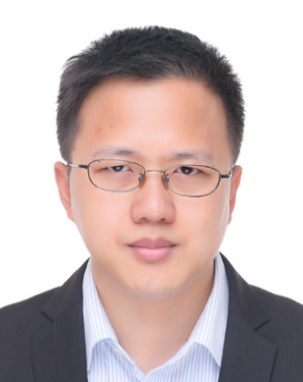
Prof.Qian Xu
Jiangsu University, China
Dr. Qian Xu received his Ph.D. degree in Mechanical Engineering from the Hong Kong University of Science and Technology in July 2013, and worked as a postdoctoral researcher at the same university until August 2014. In 2017, he worked at University of Waterloo, Canada as a visiting scholar. Currently he is a Full Professor at Institute for Energy Research, Jiangsu University, China. He has received more than 10 research funds from National Natural Science Foundation of China, China Postdoctoral Fundation and industrial collaborations etc., and made contributions in the areas of fuel cells, redox flow batteries, multi-scale multiphase heat and mass transport with electrochemical reactions, and computational modelings. He has published over 80 peer-reviewed journal papers (4 of them are ESI hot papers) and 2 academic books with more than 2850 citations (Google Scholar, H-Index 26), and applied 21 patents with 6 issued. He serves as the Member of Editorial Board of Processes, International Journal of Green Energy, as well as the reviewer for more than 30 international academic journals. He received the “Six Talent Peaks” award of Jiangsu Province in 2016.
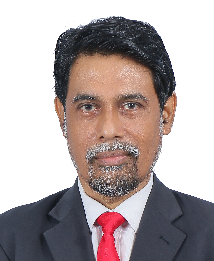
Prof.
Kamaruzzaman Sopian
Institut Penyelidikan Tenaga Suria (Seri), Malaysia
Prof. Dato' Ts. Dr. Kamaruzzaman Sopian graduated with the BS Mechanical Engineering from the University of Wisconsin-Madison in 1985, the MS in Energy Resources University of Pittsburgh in 1989 and a Ph.D. in Mechanical Engineering from the Dorgan Solar Laboratory, University of Miami-Coral Gables. His main contributions are in solar radiation modeling and resource assessment, advanced solar photovoltaic systems (grid-connected photovoltaic, solar powered regenerative fuel cell, solar hydrogen production, thin film silicon solar cell), and advanced solar thermal systems (solar cooling, solar heat pump, solar assisted drying, combined photovoltaic thermal or hybrid collector). He has 10 patents, 15 patents pending, 6 copyrights, and 1 trademark for his innovation in renewable energy technology. The innovation and invention in renewable energy technology have won over 90 medals in national and international innovation and invention competitions including special innovation awards. He was conferred the Darjah Dato’ Paduka Mahkota Perak by His Royal Highness The Sultan of Perak in 2013. A Fellow of the Malaysia Academy of Sciences (FASc), Profesional Technologist with the Malaysia Board of Technologist (PTech) and listed in the 2019 and 2020 Highly Cited Researchers by the Web of Science Group, Clarivate Analytics.
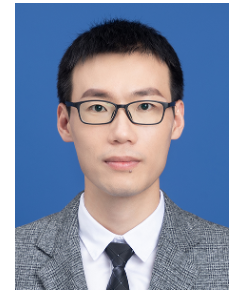
Assoc. Prof. Yang Jianping
Central South University, China
Jianping Yang is an associate professor at Central South University in Changsha, China. His main research interests includes emission and control of trace elements during coal utilization, advanced materials for heavy metals adsorption, safe disposal and recycling of hazardous wastes, etc. He has published more than 50 peer-reviewed SCI journal papers. These papers have cited in SCI journal papers for more than 1600 times, among which more than 1400 times are from other scholars. He has authorized 11 Chinese invention patents. His H-index is 24. He has been awarded the “Outstanding Oral Presentation” of The 8th International Conference on Combustion, Incineration Pyrolysis, Emission and Climate Change, and “Travel Grant” of 12th International Conference on Mercury as a Global Pollutant. He has been selected as “World’s Top 2% Scientists 2020”.
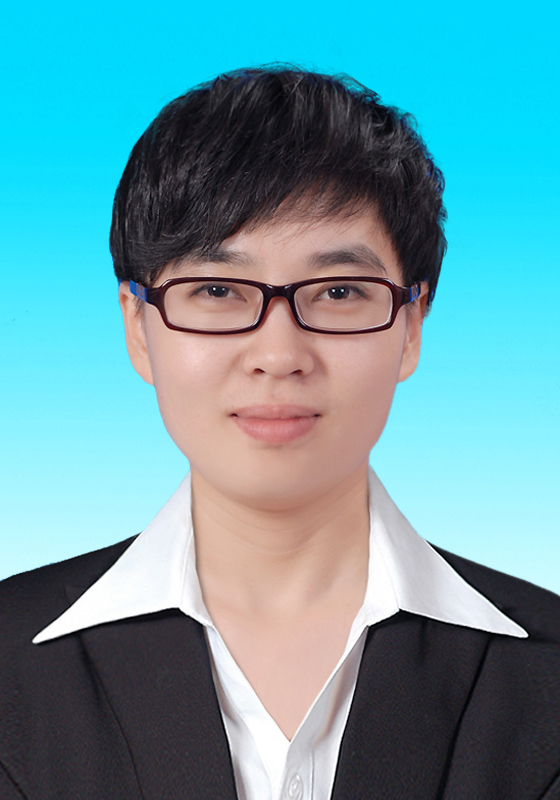
Assoc. Prof. Shen Limei
Huazhong University of Science and Technology, China
Dr. Limei Shen is currently an associate professor at Refrigeration and Cryogenics Department of Energy and Power Engineering School, Huazhong University of Science and Technology, Wuhan, China. She received her Ph.D. from Huazhong University of Science and Technology in 2014. Her research interests are thermoelectric technologies specializing in electronics cooling and energy harvesting, heatpipe, microchannel technologies and pulse magnetic cooling. Her work focuses on thermo-electric transport mechanism, efficient improvement of thermoelectric modules and systems. She has published close to 60 referred papers in this filed. Her work got the fund supports of Natural Science Foundation of China, Fundamental Research Funds for the Central Universities, State Grid Corporation of China, Midea Corporation, China Shipbuilding Industry Corporation and etc.

Assoc. Prof. Joanna Kielin-Maziarz
Kozminski University, Poland
Professor Joanna Kielin-Maziarz teaches in the Division of Constitutional Law at Kozminski University. In 2008, she obtained her Ph.D. in legal sciences, and in 2015, a post-doctoral degree in the same field. In 2007, after studies at the College of Europe, she received the Advanced Master of Arts in European Interdisciplinary Studies. She authored and co-authored several scientific publications in Polish, English, and French, including monographs, scientific articles, chapters, and reviews. She participated in many Polish and international scientific conferences, where she gave lectures, including several in English. Since 2009, she has been a member of the Polish Society of Constitutional Law and the International Association of Constitutional Law. Since 2011, she is a member of the International Centre for Sustainable Development of Energy, Water and Environment Systems. Since 2012, she is a member of the Center for the Theory and Philosophy of Human Rights. Since 2019, she is a member of the Legal Interdisciplinary Science Center at Kozminski University. In 2021, she became a member of the Review Commission of the Polish Society of Constitutional Law. She is also a member of the Gubernaculum et Administratio (Governance and Administration) journal editorial board. She is a reviewer of the journals Studia Wyborcze (Electoral Studies), Studia Prawnicze KUL (Law Studies of KUL), and Krytyka Prawa (Law Critique). Moreover, she is an attorney of the Warsaw Bar Association.
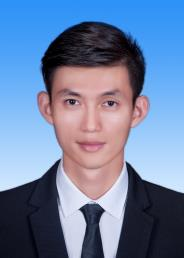
Asst.
Prof. Yanan Liu
Chongqing Jiaotong University, China
Yanan Liu, Ph.D, assistant professor at Chongqing Jiaotong University, registered utility engineer(CN), LEED AP BC+D(US), ASHRAE member(US), received his Doctor’s degree in Chongqing University in 2021.06. During 2018.1- 2019.1, Dr. Liu was a Visiting Scholar at Georgia Institute of Technology. In 2014.7, Dr. Liu received his master’s degree at National University of Singapore, Msc(Building performance and sustainability). Dr.Liu’s research interest includes building ventilation, green building and energy conservation.Dr.Liu has published more than 10 articles in peer-reviewed international journals, and serves as a reviewer for international journals.
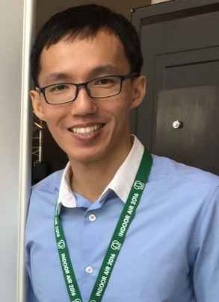
Asst.
Prof. Ng Bing Feng
Nanyang Technological University, Singapore
Bing Feng is currently Assistant Professor with the School of Mechanical and Aerospace Engineering in NTU. He obtained his PhD from Imperial College London UK in 2015 and his Bachelors with Honours from the School of Mechanical and Aerospace Engineering in NTU in 2009. His current research involves the study of fluid mechanics to achieve energy and environment sustainability in aerospace/eVTOL and building applications through both active and passive means. Furthermore, his work extends to fluid-structure interactions (FSI) in aero-servo-elasticity, wind and marine applications as well as improving computational efficiency. In parallel, his investigation is extended to atmospheric and environmental science, focusing on the fundamentals of fluid dynamics in multi-phase flows as well as experimental investigations.